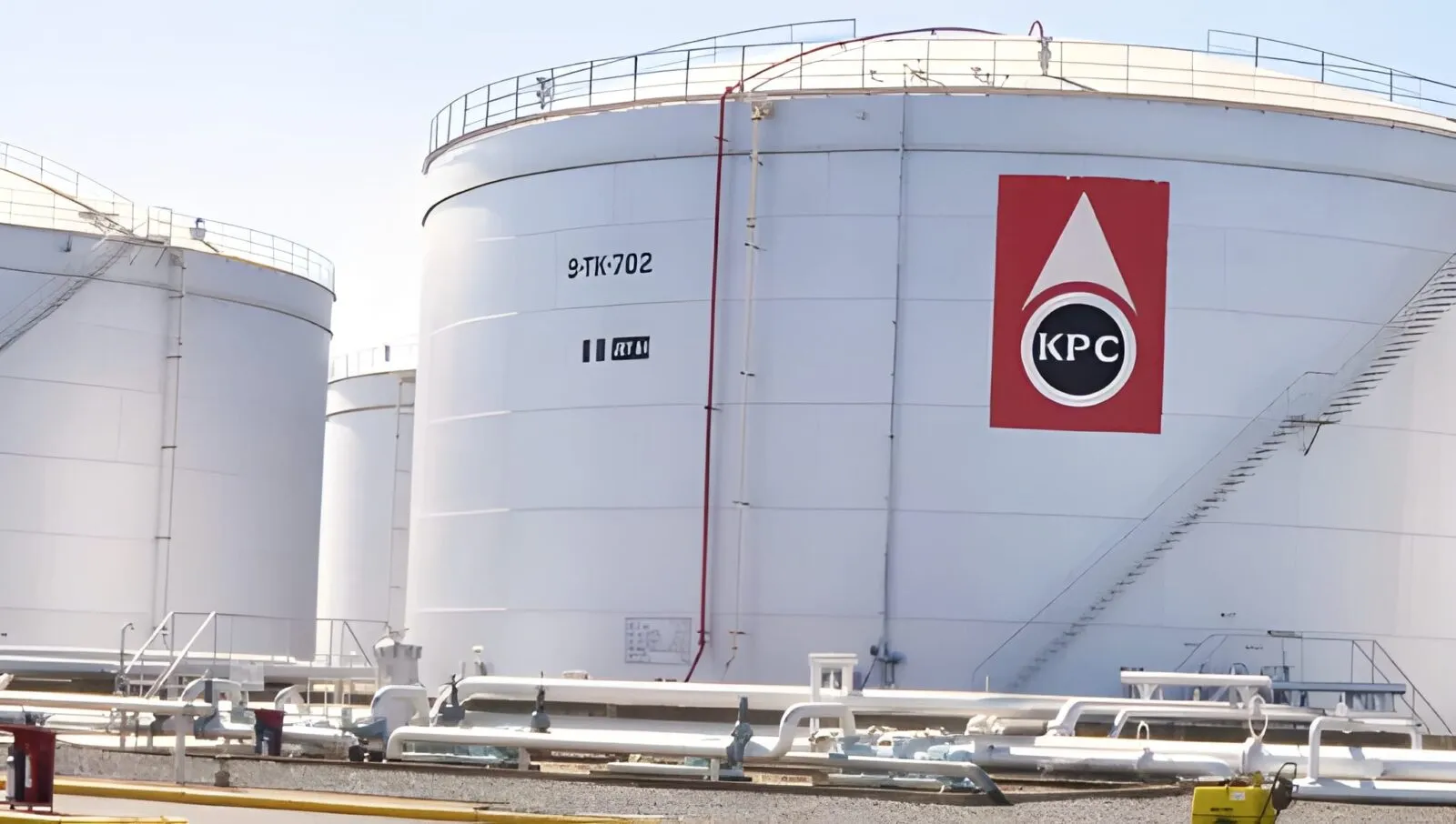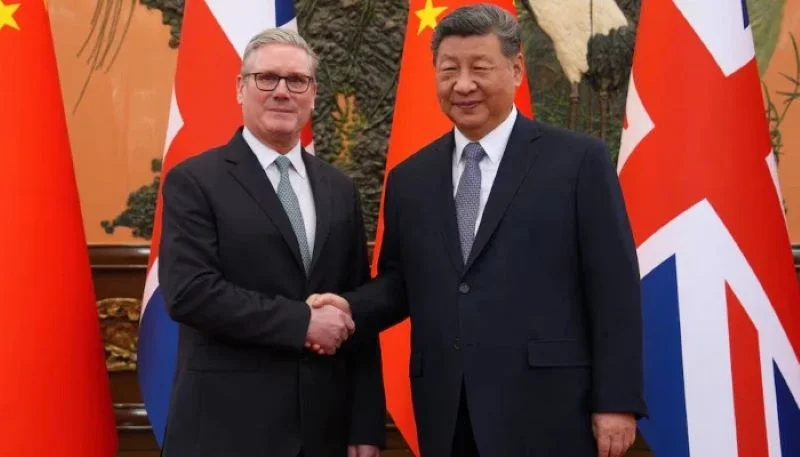In a landmark decision that will reshape Kenya’s energy sector landscape, Parliament has approved the government’s ambitious plan to privatize the Kenya Pipeline Company (KPC), paving the way for the divestment of 65 percent of state shareholding to private investors through what is expected to be one of the largest initial public offerings in East African history.
The parliamentary approval, which comes after months of intense debate, legal challenges, and public scrutiny, represents a pivotal moment in Kenya’s ongoing privatization agenda and signals the government’s determination to restructure state-owned enterprises to enhance efficiency, boost revenues, and reduce the fiscal burden on taxpayers.
Build the future you deserve. Get started with our top-tier Online courses: ACCA, HESI A2, ATI TEAS 7, HESI EXIT, NCLEX-RN, NCLEX-PN, and Financial Literacy. Let Serrari Ed guide your path to success. Enroll today.
Cabinet Endorsement Sets Stage for Parliamentary Vote
The journey toward KPC’s privatization began in earnest when the Cabinet approved the partial divestment in July 2025, framing the initiative as a fundamental shift toward “democratizing ownership” and unlocking the company’s full commercial potential. The Cabinet’s decision reflected a broader government strategy to reduce direct state involvement in commercial enterprises while maintaining strategic oversight in sectors deemed critical to national security and economic stability.
The Cabinet’s endorsement was accompanied by extensive technical analysis and financial projections suggesting that privatization would not only generate immediate capital for the government but would also improve KPC’s operational efficiency, corporate governance standards, and long-term profitability through the introduction of private sector management expertise and accountability mechanisms.
According to government projections presented during the parliamentary debate, the divestment is expected to raise approximately Sh100 billion, a substantial sum that will help address persistent budget shortfalls and reduce the government’s reliance on expensive external borrowing. This revenue projection is based on comprehensive valuations of KPC’s extensive pipeline infrastructure, strategic petroleum storage facilities, and its dominant position in Kenya’s petroleum distribution network.
Parliamentary Approval Through Sessional Paper
The formal approval mechanism came through Sessional Paper No. 2 of 2025, a policy document that outlines the government’s strategic vision for KPC’s restructuring and provides the legal and policy framework for the divestment process. The sessional paper details how the government will retain a 35 percent shareholding in the company while offering the remaining 65 percent through a public listing on the Nairobi Securities Exchange.
This ownership structure is designed to balance multiple objectives: generating substantial revenue for the Treasury, maintaining strategic state influence over critical petroleum infrastructure, broadening public participation in Kenya’s capital markets, and introducing private sector discipline and expertise into KPC’s management and operations.
The decision to retain 35 percent ownership is strategically significant, as it ensures that the government maintains a blocking minority stake that can prevent fundamental changes to the company’s operations or strategic direction without state approval. This arrangement is common in privatizations of strategic national assets across emerging markets, where governments seek to balance commercial efficiency with national security considerations.
Treasury’s Financial Projections and Revenue Enhancement
Treasury Cabinet Secretary John Mbadi has emerged as one of the most vocal advocates for KPC’s privatization, presenting detailed arguments about how the divestment could dramatically increase state revenues from the company while improving its operational performance. Mbadi’s defense of the privatization plan has focused heavily on the stark contrast between current dividend payments and the potential returns from a smaller but more valuable shareholding in a privately managed, publicly listed company.
“Although it is profit-making, the government gets just about Sh3 billion or Sh4 billion annually as dividends. I am sure that if we privatize KPC and retain just a 35 percent stake of ownership, we could make up to four or five times more out of that entity,” Mbadi explained in remarks to Parliament and media briefings leading up to the vote.
The Cabinet Secretary’s projections suggest that improved management, enhanced operational efficiency, and better capital allocation under private ownership could increase KPC’s overall profitability substantially. Even with a smaller ownership stake, the government could receive Sh12 billion to Sh20 billion annually in dividends—a four to five-fold increase over current levels—while also benefiting from the immediate Sh100 billion capital injection from the initial share sale.
Mbadi has also emphasized that privatization would attract professional management talent, strengthen governance standards, and introduce performance-based accountability mechanisms that are often difficult to implement in fully state-owned enterprises. The presence of private shareholders and the scrutiny of public capital markets would create additional pressure for management to maximize efficiency, reduce costs, and focus on long-term value creation rather than short-term political considerations.
Democratizing Ownership and Deepening Capital Markets
Majority Leader Kimani Ichung’wah has championed the privatization as an opportunity to “democratize ownership” of Kenya’s strategic assets while simultaneously deepening the country’s capital markets. This framing presents KPC’s privatization not merely as a fiscal necessity but as a democratic reform that will allow ordinary Kenyans to become shareholders in one of the country’s most valuable and strategic enterprises.
“The privatization would democratize ownership and deepen capital markets, while the State would still hold strategic control with its remaining stake,” Ichung’wah emphasized during parliamentary debates. His argument resonates with the government’s broader narrative that state ownership of commercial enterprises often benefits political elites and bureaucrats rather than ordinary citizens, and that broader share ownership through public listings represents a more equitable distribution of national wealth.
The deepening of capital markets is a particularly important consideration for Kenya’s economic development strategy. The Nairobi Securities Exchange has faced challenges in recent years with limited liquidity, few major listings, and declining investor interest. A successful KPC initial public offering could inject new energy into Kenya’s capital markets, attract both domestic and international investors, and potentially catalyze additional privatizations and corporate listings.
For retail investors, KPC shares could represent an attractive investment opportunity given the company’s essential role in Kenya’s petroleum infrastructure, its stable revenue streams from pipeline tariffs and storage fees, and its near-monopoly position in petroleum transportation. The government has indicated that special allocations may be made to ensure that retail investors and KPC employees have opportunities to acquire shares, following models used in successful privatizations in other countries.
Legal Challenges and Court Proceedings
The path to parliamentary approval has not been without significant obstacles, most notably a series of legal challenges that temporarily halted the privatization process and raised questions about procedural compliance and transparency. In August 2025, a petition filed in the High Court of Kenya succeeded in obtaining orders suspending the privatization process pending the resolution of legal challenges questioning the procedure, transparency, and public participation in the planned divestment.
The petitioners raised several concerns including allegations that the government had not conducted adequate public participation as required by the Constitution, that the valuation process lacked transparency, and that the privatization could compromise national security by placing critical petroleum infrastructure under private control. These arguments reflected broader public skepticism about privatization initiatives and concerns that valuable state assets might be sold at below-market valuations to benefit connected individuals or corporations.
The court’s initial decision to suspend the privatization process represented a significant setback for the government’s timeline and raised questions about whether the divestment would proceed at all. However, in mid-September 2025, following additional submissions from the government and intervention applications from interested parties, the High Court lifted the suspension orders, clearing the way for parliamentary debate and the eventual vote.
The lifting of the court orders was based partly on arguments that Parliament itself represents the appropriate forum for debating and approving major policy decisions regarding state assets, and that the legal challenges could be addressed through proper parliamentary scrutiny and debate rather than through judicial intervention at the policy formulation stage. The court indicated that specific implementation actions could still be challenged once the privatization process moves forward, ensuring that judicial oversight remains available while allowing the policy process to proceed.
One decision can change your entire career. Take that step with our Online courses in ACCA, HESI A2, ATI TEAS 7, HESI EXIT, NCLEX-RN, NCLEX-PN, and Financial Literacy. Join Serrari Ed and start building your brighter future today.
Concerns About Transparency and Public Participation
Despite the parliamentary approval, concerns about transparency and adequate public participation in the privatization process persist among civil society organizations, labor unions, and opposition politicians. Critics argue that the government has not provided sufficient detail about valuation methodologies, has not adequately consulted with KPC employees who will be affected by the ownership change, and has not fully explained how the 65 percent shareholding will be allocated among different categories of investors.
Labor unions representing KPC employees have expressed particular concern about potential job losses, changes to employment terms and conditions, and the possibility that a private owner might prioritize short-term profits over long-term investment in infrastructure and employee welfare. While the government has provided general assurances that employees’ rights will be protected and that the privatization aims to strengthen rather than weaken the company, specific guarantees have been limited.
There are also questions about whether Kenya’s energy sector regulatory framework is sufficiently robust to oversee a privatized KPC and ensure that the company continues to fulfill its mandate of providing reliable, affordable petroleum transportation services while preventing abuse of its dominant market position. Some analysts have called for the Energy and Petroleum Regulatory Authority to strengthen its monitoring and enforcement capabilities before the privatization is completed.
Strategic Importance of Kenya Pipeline Company
Understanding the significance of KPC’s privatization requires appreciating the company’s central role in Kenya’s petroleum supply chain and broader economic infrastructure. KPC operates Kenya’s entire petroleum pipeline network, which transports refined petroleum products from the port city of Mombasa to Nairobi and other inland distribution centers. This pipeline system is essential for ensuring reliable fuel supplies to Kenya’s transportation sector, manufacturing industries, power generation facilities, and millions of households.
The company also operates strategic petroleum storage facilities with a combined capacity of hundreds of millions of liters, providing crucial buffer stocks that help stabilize fuel supplies during import disruptions or supply chain challenges. These storage facilities represent significant strategic assets that contribute to Kenya’s energy security and economic resilience.
Beyond its core pipeline and storage operations, KPC plays an important role in regional petroleum distribution, with pipeline connections serving neighboring countries and contributing to East Africa’s economic integration. Any privatization must therefore consider not only Kenya’s national interests but also regional implications and commitments under various East African Community protocols.
The company’s near-monopoly position in petroleum pipeline transportation gives it significant market power and generates stable, predictable revenues from tariffs charged to petroleum marketing companies. This revenue stability makes KPC an attractive investment opportunity but also necessitates careful regulatory oversight to prevent abuse of market dominance and ensure that efficiency gains from privatization translate into lower costs for consumers rather than simply higher profits for shareholders.
Implementation Timeline and Next Steps
With Parliament’s approval now secured, the government faces the complex task of finalizing legal and regulatory frameworks necessary to complete the divestment. This implementation phase will involve multiple critical steps including final valuation of KPC’s assets and business, selection of transaction advisors and underwriters for the share offering, preparation of a prospectus meeting Capital Markets Authority requirements, determination of the share price and allocation methodology, and coordination with the Nairobi Securities Exchange on listing procedures.
The Capital Markets Authority, Kenya’s securities regulator, will play a crucial oversight role in reviewing the share offering prospectus, ensuring adequate disclosure of material information to investors, and protecting retail investors from misleading information or unfair allocation practices. The authority’s approval will be essential before any shares can be offered to the public.
The Treasury has indicated that it aims to complete the share offering before the end of the current fiscal year, though this timeline may be ambitious given the complexity of the transaction and the potential for additional legal challenges during the implementation phase. International experience suggests that privatizations of this scale and strategic importance typically require 6-12 months from parliamentary approval to actual share listing and trading.
Broader Context of Kenya’s Privatization Agenda
KPC’s privatization is not an isolated initiative but rather part of a broader government strategy to restructure state corporations, reduce the fiscal burden of loss-making or underperforming state entities, and shift government focus from direct commercial operations to policy, regulation, and strategic oversight. This approach reflects economic liberalization philosophies that have gained traction globally over recent decades, though with mixed results across different countries and sectors.
Kenya has previously privatized several state corporations with varying degrees of success. Some privatizations, such as certain telecommunications assets, have been viewed as successful in improving service delivery and reducing government fiscal obligations. Others have been controversial, with questions about whether adequate value was obtained for state assets and whether promised improvements in service delivery and employment materialized.
The government has identified several other state corporations as candidates for full or partial privatization, suggesting that KPC may be the first of several major divestments in coming years. The success or failure of the KPC privatization will likely influence public and parliamentary attitudes toward subsequent privatization initiatives and could either accelerate or derail the broader privatization agenda.
Economic and Political Implications
The Sh100 billion expected from KPC’s privatization represents a significant but temporary solution to Kenya’s fiscal challenges. While this capital injection will provide welcome relief to the Treasury and help finance development priorities without additional borrowing, critics point out that it represents a one-time windfall rather than a sustainable solution to structural budget deficits driven by high recurrent expenditure and inadequate revenue collection.
There are also concerns that relying on asset sales to finance current expenditure rather than productive capital investment represents poor fiscal policy that trades long-term income streams for short-term budget relief. However, government officials counter that improved dividends from a more profitable, efficiently managed KPC will ultimately generate more long-term value for the state than continued full ownership of a less dynamic entity.
Politically, the privatization has divided opinion across party lines and within parties, with some legislators viewing it as a necessary reform to improve efficiency and reduce government’s commercial footprint, while others see it as surrendering strategic national assets to private interests who may prioritize profits over public service obligations. The successful parliamentary vote suggests that the government has managed to build a sufficient coalition to advance its privatization agenda, but implementation challenges and potential legal obstacles remain.
Conclusion: A Watershed Moment for Kenya’s Economic Policy
Parliament’s approval of KPC’s privatization marks a watershed moment in Kenya’s economic policy trajectory and will test assumptions about the benefits of private ownership and market discipline in managing strategic national infrastructure. If successful, the privatization could generate substantial revenues for the Treasury, improve KPC’s operational efficiency and profitability, deepen Kenya’s capital markets, and provide a model for future state enterprise restructuring.
However, the initiative also carries significant risks including potential regulatory capture, abuse of market dominance, failure to achieve projected efficiency gains, and political backlash if the privatization is perceived as benefiting elites at the expense of ordinary Kenyans or national interests. Careful implementation, robust regulatory oversight, transparent allocation of shares, and continued parliamentary and public scrutiny will be essential to ensuring that KPC’s privatization achieves its stated objectives while protecting public interests in this strategic national asset.
As the government moves forward with finalizing legal and regulatory frameworks, all eyes will be on how it navigates these challenges and whether Africa’s energy sector privatization can deliver on promises of democratized ownership, enhanced efficiency, and improved public value from one of Kenya’s most valuable state enterprises.
Ready to take your career to the next level? Join our Online courses: ACCA, HESI A2, ATI TEAS 7 , HESI EXIT , NCLEX – RN and NCLEX – PN, Financial Literacy!🌟 Dive into a world of opportunities and empower yourself for success. Explore more at Serrari Ed and start your exciting journey today! ✨
Track GDP, Inflation and Central Bank rates for top African markets with Serrari’s comparator tool.
See today’s Treasury bonds and Money market funds movement across financial service providers in Kenya, using Serrari’s comparator tools.
Photo source: Google
By: Montel Kamau
Serrari Financial Analyst
2nd October, 2025
Article, Financial and News Disclaimer
The Value of a Financial Advisor
While this article offers valuable insights, it is essential to recognize that personal finance can be highly complex and unique to each individual. A financial advisor provides professional expertise and personalized guidance to help you make well-informed decisions tailored to your specific circumstances and goals.
Beyond offering knowledge, a financial advisor serves as a trusted partner to help you stay disciplined, avoid common pitfalls, and remain focused on your long-term objectives. Their perspective and experience can complement your own efforts, enhancing your financial well-being and ensuring a more confident approach to managing your finances.
Disclaimer: This article is for informational purposes only and does not constitute financial advice. Readers are encouraged to consult a licensed financial advisor to obtain guidance specific to their financial situation.
Article and News Disclaimer
The information provided on www.serrarigroup.com is for general informational purposes only. While we strive to keep the information up to date and accurate, we make no representations or warranties of any kind, express or implied, about the completeness, accuracy, reliability, suitability, or availability with respect to the website or the information, products, services, or related graphics contained on the website for any purpose. Any reliance you place on such information is therefore strictly at your own risk.
www.serrarigroup.com is not responsible for any errors or omissions, or for the results obtained from the use of this information. All information on the website is provided on an as-is basis, with no guarantee of completeness, accuracy, timeliness, or of the results obtained from the use of this information, and without warranty of any kind, express or implied, including but not limited to warranties of performance, merchantability, and fitness for a particular purpose.
In no event will www.serrarigroup.com be liable to you or anyone else for any decision made or action taken in reliance on the information provided on the website or for any consequential, special, or similar damages, even if advised of the possibility of such damages.
The articles, news, and information presented on www.serrarigroup.com reflect the opinions of the respective authors and contributors and do not necessarily represent the views of the website or its management. Any views or opinions expressed are solely those of the individual authors and do not represent the website's views or opinions as a whole.
The content on www.serrarigroup.com may include links to external websites, which are provided for convenience and informational purposes only. We have no control over the nature, content, and availability of those sites. The inclusion of any links does not necessarily imply a recommendation or endorsement of the views expressed within them.
Every effort is made to keep the website up and running smoothly. However, www.serrarigroup.com takes no responsibility for, and will not be liable for, the website being temporarily unavailable due to technical issues beyond our control.
Please note that laws, regulations, and information can change rapidly, and we advise you to conduct further research and seek professional advice when necessary.
By using www.serrarigroup.com, you agree to this disclaimer and its terms. If you do not agree with this disclaimer, please do not use the website.
www.serrarigroup.com, reserves the right to update, modify, or remove any part of this disclaimer without prior notice. It is your responsibility to review this disclaimer periodically for changes.
Serrari Group 2025
















